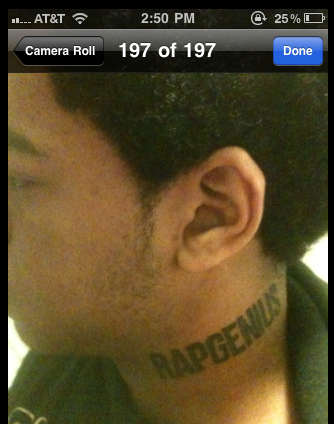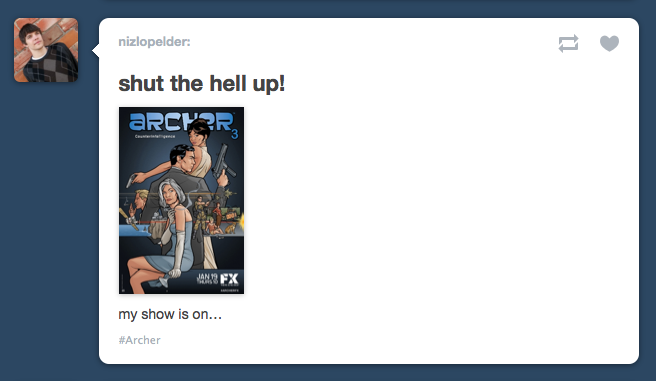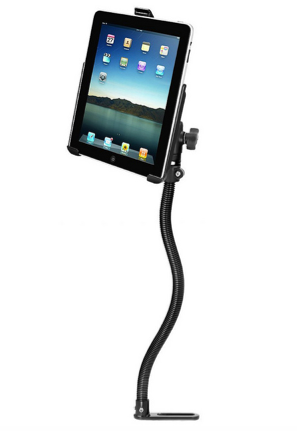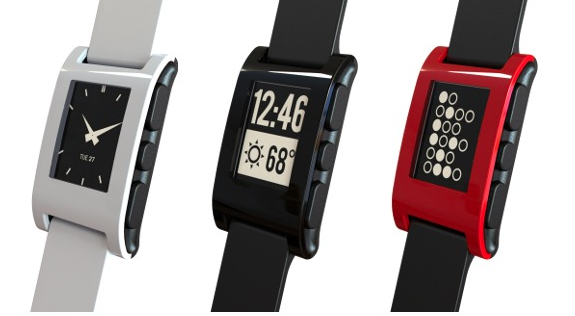April 24th, 2012
I have been obsessed with Mechanical Turk since hearing about Aaron Koblin’s Sheep Market project. While these days crowdfunding might be hotter than crowdsourcing, the idea of a massive mob of remote workers to me will always be fascinating.
Mechanical Turk is part of Amazon and launched in 2005 and represents one of Amazon’s “inside out” businesses where they took a tool they used internally and turned it into a monetizable, publicly-accessible product. Amazon Web Services is perhaps the best example, though MTurk is a close second.
So today’s post is going to be an MTurk experiment. I posted a simple question: “What is your favorite mobile phone app and why?” hoping to collect a tiny, anecdotal sample of global thoughts around mobile phone applications. MTurk workers are all over the world, so I also asked the workers to list their handset.
You should know that the reward for each of these answers was $0.10 and I collected approximately 125 replies, ultimately rejecting around 10% because they were nonsense or didn’t answer the question. This study is *in no way* scientific. I was mostly looking for knee-jerk replies, and think I achieved that. Here are my 10 favorites verbatim and then some more general thoughts.
Answers have not been edited except for spelling.
1. I love my flashlight app, It is convenient and quick to function. The illumination is bright as well. (droid X)
2. My favorite mobile phone application is Bluetooth. I like this application because it is the best cordless data transfer technology between mobile phones irrespective of network connectivity. (Nokia 3500 Classic)
[note: Bluetooth? Really?]
3. I like the Pinterest App because I can use it when I’m waiting in line to keep me from getting bored and agitated from waiting. (Apple iPhone).
4. Tiny Tower is my favorite app, because it takes awhile to build up your income and if you want to max faster without cheating you have to setup a system to profit. I also like it because I don’t have to spend too much time on it, just check it once or twice a day after my building is high enough, one of my all time favorite game. (Apple iPhone)
5. My favorite mobile phone app is calculator as it help me to calculate when and where if it is necessary (Nokia c2).
6. My favorite app is ‘Draw Something’. It is my favorite app because it is simple, fun, and free. (HTC EVO)
7. My favorite mobile app is The Creeps. The simplistic Tower Defense game is intuitively controlled and pretty fun for a free price point. (Apple iPhone)
8. I enjoy the app Dismount on my phone. I can aim and throw my ragdoll character off of/into things one handed, it’s a nice little mindless game to pass the time while I’m feeding my kid with the other arm.
9. My favorite mobile phone app is Reddit is Fun. It allows me to browse Reddit, which has huge amounts of content and can keep me busy for hours on end (LG Optimus V).
10. My favorite mobile phone app is Star Walk. I love being able to pull up the sky anywhere in the world at that moment and see what is up there, especially at night. (Apple iPhone)
Lessons learned:
1. People LOVE Reddit. Approximately 10% of the replies listed some sort of Reddit app as the favorite. Perhaps this is related to the types of people that hang out on Mechanical Turk all day, though who knows.
2. Games were often listed as a favorite app. There were many replies that listed something like “…I use it when I am bored, for a few minutes at a time”. This came up over and over. To me, this spoke to the idea that the best mobile apps should require very little commitment time-wise.
3. Handsets were really, really mixed – no dominant brand.
4. Some respondents believed their handset WAS an app. I received around 10 responses that said “my favorite app is Samsung Galaxy” or “my favorite app is Android”. I re-worded the question to say “the brand of your phone is not an app” and that helped significantly.
There are probably more lessons to be learned here, and likely another post or two.
Hit me up on Twitter if you’d like to peep the data set.
April 23rd, 2012
Podcasting has been on the cusp of greatness since the invention of the smart phone and maybe even before.
While the audience is large and growing I wouldn’t say it’s something that is mainstream. Will it ever become huge and a key part of the zeitgeist or if there is something flawed about the platform and format itself?
While I am sure that e-reading will eventually eclipse printed books and digital movies and television will (or maybe have) eclipse DVDs and VHS, I am not sure the same argument can be made for podcasts and radio.
In that respect I would liken it to RSS, which was ultimately eclipsed by Twitters usability and filtering. Obviously in many ways Twitter is very different from RSS, though the intention is the same – help me consume content from my favorite sites in an easy way.
Perhaps the format and experience needs to be tweaked in the slightest of ways to create the watershed moment where we realize that we have been doing it wrong all along, or perhaps audio will never be able to achieve the same groundswell of support offered to videos, photo and text. I can’t say I buy this – people sit at their desks all day and listen to music (whether on the radio or otherwise) – and you don’t need the same kind of full-concentration with audio, making it almost more appealing.
The a-ha moment is coming.
——-
Special thanks to Joe West for help on this post.
April 22nd, 2012
Foursquare is going to change the text of the center button soon, I can feel it in my gut.
I had this realization today that my in-app behavior has shifted over the past few months. I am checking in less, but using the app more. The real gem of Foursquare in New York City is the “Explore” feature.
“Explore” is a lovely and truly understated technological breakthrough in that it is a recommendation engine that actually works. The more data you put in about yourself, the more spot-on recommendations come back out at you.
Recommendation engines are extrememly tough to pull off, even with dozens of geniuses and millions of dollars. It’s usally “give us a bunch of data and we’ll blow your mind, we promise” sort of sitautions where the hit rate is often pretty low.
Foursquare is one of the only examples that I can think of where it’s actually working really well (“people you may know” on Facebook is perhaps the best example, the more friends you add, the better the friend recommendations). Data in, data out.
So I am making an effort to put in more data and feed the beast. Today I conducted an extremely scientific sandwich poll on twitter and got back over 20 replies which I compiled into a foursquare list.

Hoping to do this a lot more often, and excited about the potential results and recommendations, both IRL and from the engine, that this produces.
April 21st, 2012
I am starting a new type of post called “Inspired by Quora”, where I will write a post based on a Quora question I think is interesting. This particular question was “What are free Airbnb professional photo shoots like?”
First let me say that marketplace businesses/dynamics are absolutely fascinating. I could write like 20 posts on this and probably will since since I made this promise to really for reals write every single day.
I am a firm believer in optimizing for the seller in any marketplace scenario. If you have amazing inventory, buyers will find you. Feel free to rage about this in the comment if you don’t agree.
So in the case of Airbnb, that means they want to cater to those people listing apartments – get them to keep their calendars updated, and offer people considering a listing some carrot to get them to actually list their place. They were right to recognize that there is a certain mental hurdle in listing your apartment, and it is the same mental hurdle that keeps you from selling stuff you don’t need on craigslist, listing all your used books, etc. Listing anything on a marketplace site is a pain and if it doesn’t sell then you are even more frustrated.
The way that Airbnb solved this problem is by offering free photography. Someone literally comes to your apartment/house and you do nothing while they take amazing photos of your spot and upload them directly to Airbnb.
For me it totally worked – having the photos sitting there was enough to get me to complete the description. Ghost/incomplete/crappy listings on marketplaces (ahem ebay) are such a nuisance and a real drag on the user experience. By optimizing around great photos, the secret to lots of hotness right now in the tech world, they were able to create a more appealing marketplace in a market that was already filled with large players.
These small marketplace hacks really make a huge, huge difference for both buyers and sellers alike.

classic Airbnb photo – crisp, clear, enticing (also, not my house)
April 20th, 2012
Highly recommend the Peter Thiel video from the Pando Monthly event last night.
One quote from Thiel that really stuck out:
“I don’t think it makes sense to be contrarian [just] to be contrarian. That assumes that people have well defined views. That’s one of the things that has shifted — people don’t have real opinions anymore.”
Some thought questions:
How is it that we have, according to Thiel, lost these well-defined views that apparently were once ubiquitous?
Does the digital dissemination of information and opinion mean that we are less likely to develop our own opinions, and more likely to just steal soundbytes from someone else?
Or rather is it that there’s so many opinions floating around that we prevent ourselves from developing anything deep and well-defined because we are too busy shuffling from one to the next?
While there’s certainly a ton of me-too thinking pervasive in technology (and a ton of other industries), I am struggling to think about it as a “new” phenomenon. Has it become particularly pronounced over the past 15 years as the technology startup world has grown and become more mainstream?
What’s interesting though is that if you’re a contrarian and you’re right, and the world actually does shift in the way you say it is going to, how do you keep it up?
April 19th, 2012
Did you hear the one about how Paypal started as a P2P (peer-to-peer) mobile payments company for Palm Pilots? The central concept was the same as most P2P mobile payments companies: you’re sitting at a restaurant with a group and the check comes and HOW do you split it, so stressful, OMG.
Yet when Paypal realized (circa 1998) that everyone sitting at the table needed a Palm Pilot to participate in their mobile payment revolution, and that scenario would happen probably almost never (only ballers had Palm Pilots back then, remember), they scrapped the idea.
But it is now 2012, and P2P mobile payments are BACK with a vengeance. But who will be the big winner? I think it’s still anyone’s game.
Let’s return to the dinner scenario. I had some people over for dinner a few weeks ago, and a friend was going to take a cab home but had no cash. Not to worry, says me! I whipped out my Square. And this girl looked at me stupefied as I took out the dongle, swiped her card, and handed her $20. I figured Square was like so 2010, but I am realizing now that although Square definitely owns it at Flea Markets, it hasn’t *really* penetrated the Dinner Table yet.
I then showed my friends Venmo, and the reaction was similar. Because SMS is the delivery mechanism, Venmo prompts even more disbelief – there’s no tangible action whatsoever.
While Paypal is big enough now to have penetrated the mainstream, I wonder who will be the real winner of P2P mobile payments – that holy grail of dinner-table-transactions.

Here are the main contenders:
1. Square: Beautiful and seamless experience, emailed receipts are amazing and you only need one and not everyone at the table needs an account, just a credit card. But a dongle can’t fit in your wallet. To me that’s a dealbreaker.
2. Venmo: Uses extremely popular existing platform (SMS). Though I think the mental chasm of “sending money through text message” is going to be tough to tackle. If they can get past that, it’s a great product.
3. Dwolla: The wildcard. They don’t have a P2P mobile app that I know about, though I am sure there’s likely one in the works. They do an excellent job of branding and user education, which is why I think they are the sleeper contender here.
4. Bump/Paypal: Everyone knows Bump and everyone knows Paypal. But there’s serious, serious rage (both on the web and IRL) centered around Paypal, so much so that I bet negative paypal-related domains (paypalblows.com, etc.) are fetching some pretty serious coin on the domain message boards these days. If Bump made their own payments app, I think it would be pretty sweet. Here’s hoping.
5. Bitcoin: JK.
Imagine trying to explain Bitcoin to _________ (fill in the name of anyone you know who isn’t an uber-nerd).
The winner of the Dinner Table Challenge will take a sizable slice of a likely many-billion-dollar market. But the real prize is a chance to penetrate the $$$-related zeitgeist. Can you imagine – a Square in a rap video? Beyonce and her Blackberry Venmo-ing?
Soon.
April 18th, 2012
Rap Genius can now count itself among only a small handful of startups where a member of the community (as in, someone who isn’t a founder or employee) has ink related to the startup.

Now, even if Monster Mike’s new tattoo is a fake, I would argue that this is still kickass for RG. The site isn’t just crushing their original goal of bringing the nuances of rap lyrics to the masses, but that their community is getting stronger and stronger with every song that gets decoded.
Superfans are so, so important to any community endeavor – those few people who will put your stickers on bathroom walls and tell their friends to get an account. The ones who will spend hours on your site, making it better for every new visitor that arrives. As a founder (like Tom Lehman) or an employee there’s only so many people you can reach every day – superfans help to spread the word in a way that you as a founder maybe can’t. While 1 guy getting a tatt isn’t the same as other “metrics” like month-on-month traffic growth, I would argue that it is maybe more significant.
This is just the beginning for this burgeoning empire of swag that is Rap Genius. Once you get the community dynamics just right, even on the most micro scale, the community will build on itself, weaning its way into the zeitgeist and never looking back.
April 17th, 2012

People use the phrase “MY SHOW” for a reason, and have this weird possessive relationship with television shows that as far as I can tell doesn’t really exist with movies. Yet the potential of this sort of possessive/obsessive behavior isn’t fully realized with existing digital distribution strategies.
Let’s take the hypothetical situation of a not-super-popular network television show on the night it airs (unlike Archer mentioned above, which is super popular). Sometimes shows like this aren’t on Hulu or Netflix and the network certainly isn’t giving it away for free on YouTube as a promotional giveaway because the upside isn’t really there. But for someone, this is their show. It usually takes time to get it on iTunes (very hit or miss) and sometimes it’s not available there either, or the entire season is dumped at the end of the season’s run.
At this point, people will turn to torrent sites (torrenting sites?) or streaming sites, who have somehow grasped that the desire to watch/catch-up is highest in the 30 seconds after the show airs and falls precipitously afterward. This is based on entirely anecdotal gut-feelings, though surely there have been studies have been done on this topic. DVR wonderfully took advantage of the behavior described above, but in this new digital universe even DVR just isn’t quite the answer any more.
What I really want is a site like Gumroad to power this instantaneous knee-jerk desire to see my show ASAP. Gumroad is an interesting new platform that allows people an easy way to sell digital goods and collect payments, and it would be nice to know that everything is there and available for immediate purchase.
If Gumroad doesn’t do it, another option is that anyone can easily build a site powered by Gumroad that sells digital content instantaneously (where GR acts as the platform). People might even pay a premium. Night it comes out? Then it’s $2.50, and goes down to $1.99 the next day.
Pricing and monetizing digital content is one of the most fascinating future-of-the-web topics to me right now because the world of digital content is maturing. I think Gumroad has come up with a very compelling product that could contribute in a meaningful way if properly embraced, and I am excited to watch their progress.
April 16th, 2012
Saw this really amazing iPad mount over the weekend and forgot to snap a photo.
Luckily, I was able to find a similar photo on the interwebs. It looked a bit like this:

Now, iPad/tablet mounts aren’t exactly new, but they are getting more and more tricked out and awesome. Mounts are just the beginning, and seeing it all rigged up like that got me thinking about all the things I wanted MY mounted iPad to control in my apartment (“house” is a bit of wishful thinking, whatevs). This is part Back to the Future II, part actually possible.
1. Control the temperature — Obvious, and coming soon.
2. Control the music — Is airfoil available on the iPad? I assume the best bet here is Sonos though I imagine the home-entertainment-via-tablet market is going to grow a lot over the next 5-10 years.
3. Control the garage door and start my car for me — Not that I have a garage! But seems like that might be kind of cool for all you car-lovers.
4. Order delivery food — Knows past orders, nearby places, hours.
5. Control my television — Discovery + actual channel-changing.
6. Be my smoke alarm — Not sure if this is technically possible, but this is a wish-list, remember.
7. Personal data portal — Included here: tracks diet, home products, exercise/health stats, travel, sleep patterns. Basically every personal-data-related startup in a single app.
8. PRINT STUFF – directions, articles, grocery lists, recipes, etc.
Obviously each of these things warrants its own post. Expect that soon.
April 15th, 2012
Just a quick note about Kickstarter and the Pebble watch.

Given everything out there about Kickstarter’s founding story one gets the impression that the crux of its existence revolves around art and creativity. Just a guess based on that huge banner on their home page. Funding a rock concert in New Orleans and all that. Novellas, art projects, letters, albums, tours, Girl Walk, etc.
Up for debate whether consumer electronics fits in this category. Ask someone in 2006 and the answer is likely “HELL TO THE NO”, especially in the years before Apple (and their design-conquers-all attitude) was the most respected brand in the world of consumer electronics, which pre-iPhone they def. were not.
Back to the Pebble watch. Consumer electronics are among the most well-funded projects on Kickstarter despite the fact that it’s dubious whether they should even be included in the scope of fundable projects. Which is really fascinating because that to me means that consumer electronics as a market has been ripe for disruption all along. That said, it’s ridiculously not obvious that disruption would come from the same place that allows an artist with a sharpie, a hotel room and a webcam a way to make the art she wants.
I guess the big lesson here is that you can have a secret plan to disrupt one market (how creativity is funded) and end up making an arguably even larger splash in another one (consumer electronics r&d, marketing, sales, business models, etc.) Was this part of Kickstarter’s plan all along? Obviously there’s no way to tell, but my guess is probably not.
Making consumer electronics has, as far as I can tell, not *really* been considered a creative way to spend your time until maybe right now. In 2009 I did a ton of research on making a totally awesome mini-projector (thesis: smart phones would soon be everywhere, and the only downside is the lack of screen real estate). I was basically told over and over again that I would get undercut by someone doing it cheaper who already has a standing deal with Best Buy, would get shoved out of the market, and go bankrupt doing so because of the overhead that accompanies “hardware startups”.
So good on you kind citizens of the internet for saying eff that. Give us devices that are smart and beautiful and carefully crafted and we will throw literally millions at them overnight.






